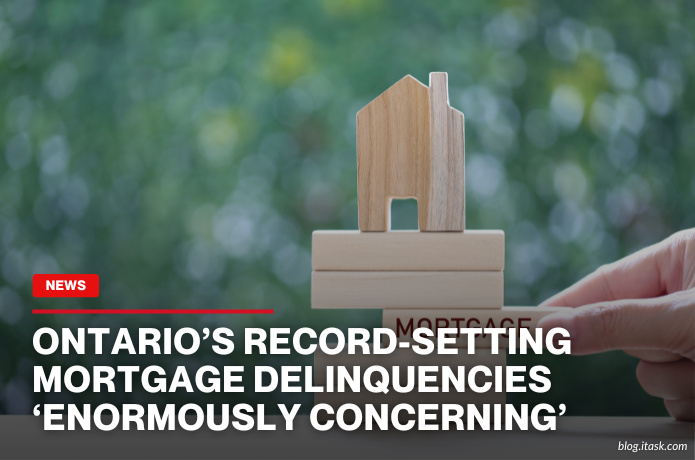Ontario’s record-setting mortgage delinquencies ‘enormously concerning’
Ontario’s record-setting mortgage delinquencies ‘enormously concerning’

Ontario is seeing a sharp rise in overdue mortgage payments, reaching new record levels. In the first quarter of 2025, the share of mortgages in Ontario that are more than 90 days past due climbed to 0.24 per cent—a jump of 71.5 per cent compared to the same period in 2024. That makes it the highest rate ever recorded since this data started being tracked.
Credit experts describe the situation as “enormously concerning.” The underlying cause is linked to mortgages taken out during the COVID-era, when interest rates were exceptionally low. Homeowners who locked in very cheap rates are now facing much higher costs at renewal, triggering what analysts call “payment shock.”
Rising mortgage delinquencies are part of a growing pattern of financial stress. In addition to mortgage loans, delinquency in other credit types—like credit cards and auto loans—is also climbing. Nationally, non-mortgage delinquencies rose 24 per cent over the same period, with Ontario leading the increase. This points to broader affordability problems, driven by inflation and higher living costs.
The mortgage renewal surge, especially in Ontario, is also tied to what analysts call the “great renewal.” Many homeowners are refinancing or switching lenders—about 28 per cent of borrowers made a switch—and refinancing activity rose nearly 58 per cent year over year. But even refinancing may not ease the burden for all, as affordability remains squeezed.
Some experts warn the trend could worsen. Although the absolute delinquency rate of 0.24 per cent still appears small, the rapid rise could signal more serious trouble ahead if it continues. Mortgage defaults tend to lag other financial strains, so the current rates might be an early warning of deeper problems on the horizon.
For now, households across Ontario are under pressure. Many are cutting back spending—credit card use has declined, and monthly card spending has dropped by over \$100. Yet payments on credit accounts have also fallen, suggesting consumers are pulling back not just by choice, but out of necessity. Higher unemployment and rising prices are adding more weight to budgets already stretched by soaring mortgage costs.
